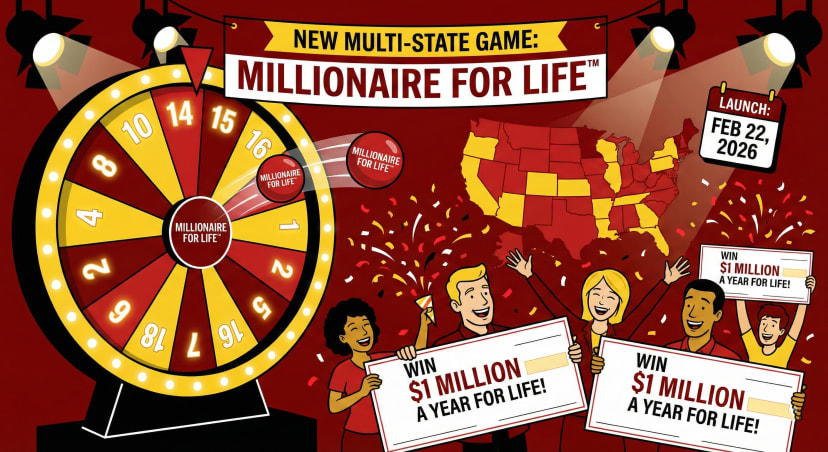Massachusetts Lawmakers Advance Online Lottery Expansion

Recommended casinos
Key Takeaways:
- Revenue Potential: Online sales could add $200–300 million annually, bolstering funding for K-12 education and local infrastructure, per preliminary commission estimates.
- Competitive Edge: Legalization counters illegal offshore gambling, protecting consumers and channeling funds to regulated channels.
- Implementation Timeline: Subject to gubernatorial approval and regulatory setup, the platform could launch by mid-2026, following model precedents in Michigan and Pennsylvania.
The Massachusetts State Legislature introduced a bill on September 24, 2025, to legalize online lottery sales, marking a pivotal step toward modernizing the state's gaming framework amid rising competition from offshore platforms. This proposal, if enacted, would enable the Massachusetts State Lottery Commission to offer digital ticket purchases via a secure app, potentially generating millions in additional revenue for public education and municipal aid. The move addresses longstanding calls from industry stakeholders to capture a share of the burgeoning iLottery market, estimated at over $1 billion annually in neighboring states.
The bill, sponsored by a bipartisan group of lawmakers, responds to the evolving consumer landscape where traditional retail sales have plateaued. With the state lottery contributing approximately $1.2 billion in fiscal year 2024—ranking it among the top revenue sources after income and sales taxes—the online expansion aims to boost participation without cannibalizing brick-and-mortar outlets. Proponents highlight safeguards, including age verification, geofencing, and responsible gaming tools to mitigate risks associated with digital access.
In the body of the debate, the proposal underscores a broader industry shift toward digital innovation. The Massachusetts lottery, operational since 1972, has seen stagnant growth in recent years, with total sales hovering at $6 billion amid economic pressures and shifting player demographics favoring mobile convenience. The bill explicitly excludes sports betting or casino elements, focusing solely on draw-based games like Mega Millions and Powerball, as well as scratch-offs delivered digitally.
Industry observers note that similar expansions in other jurisdictions have yielded double-digit sales increases within the first year. For instance, Michigan's iLottery, launched in 2014, now accounts for 20% of total lottery revenue. In Massachusetts, the commission plans to partner with established software providers to ensure robust cybersecurity and seamless user experience, drawing on lessons from recent data breaches in unregulated markets.
Critics, including some retail advocates, express concerns over potential job losses at corner stores and supermarkets, which rely on lottery commissions for 5–7% of income. However, the bill includes incentives for hybrid models, allowing retailers to integrate online sales kiosks. Public hearings are slated for October, with the full House vote expected by year's end.
This development positions Massachusetts at the forefront of lottery evolution, aligning with federal trends toward regulated digital gaming. As offshore operators continue to erode market share—estimated at 15% in New England—the bill represents a pragmatic response to sustain the lottery's role as a fiscal cornerstone.
Sources:








